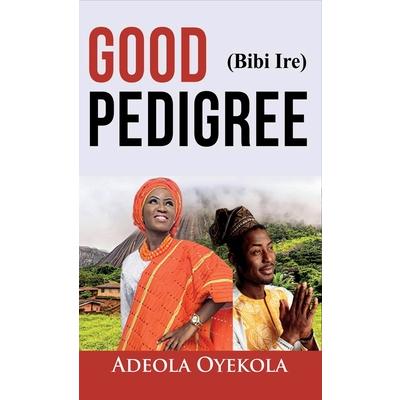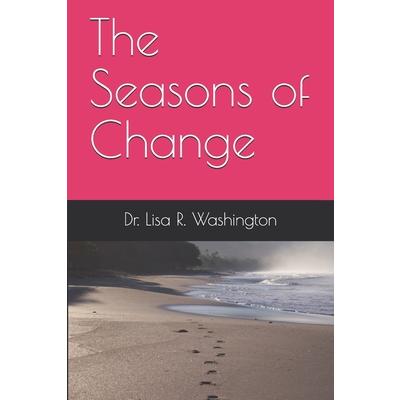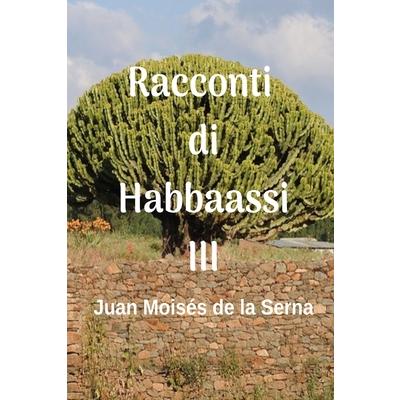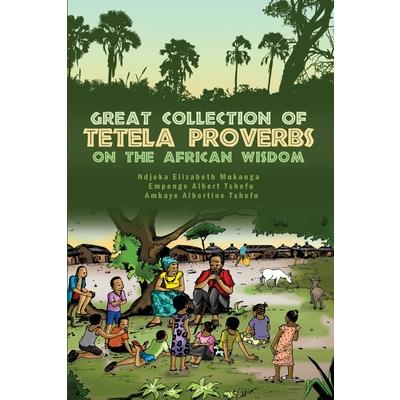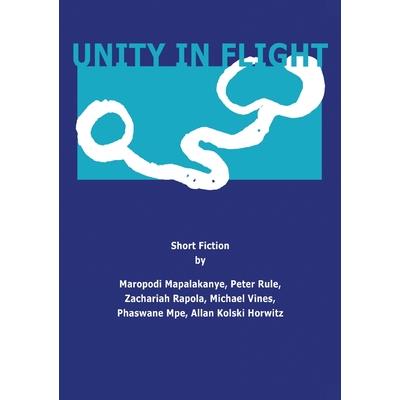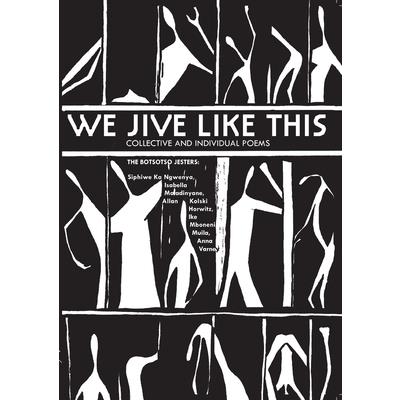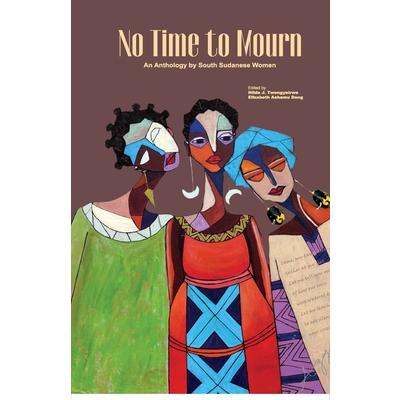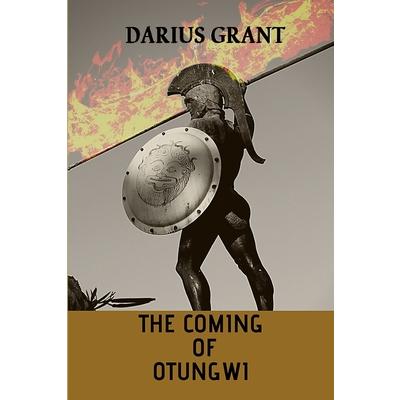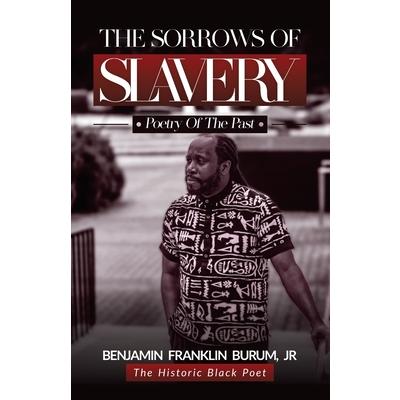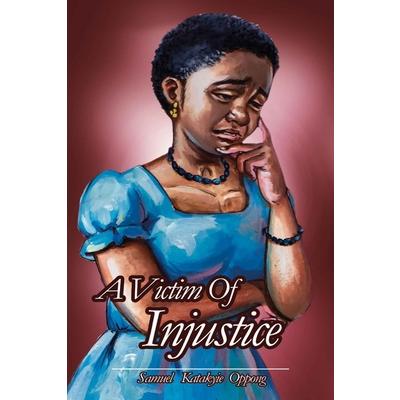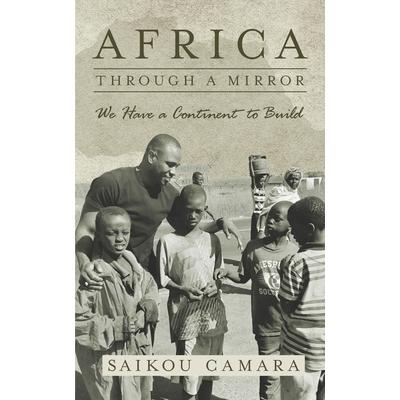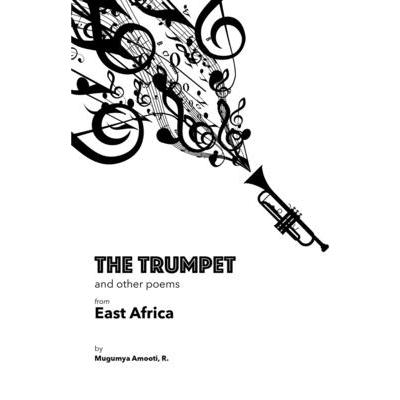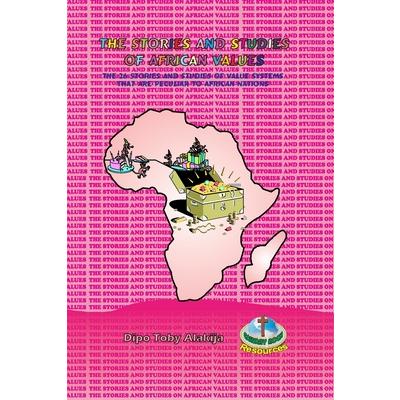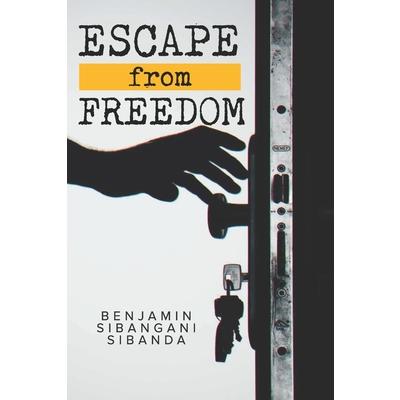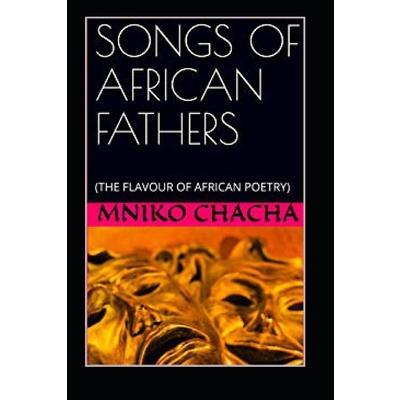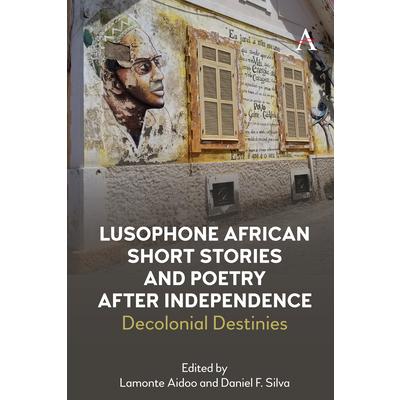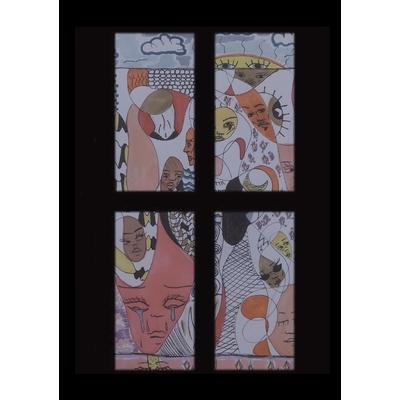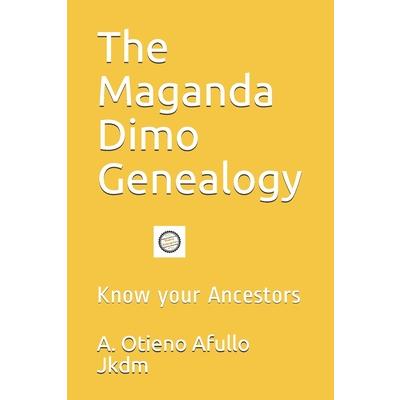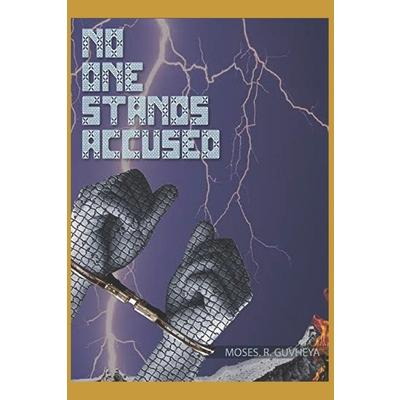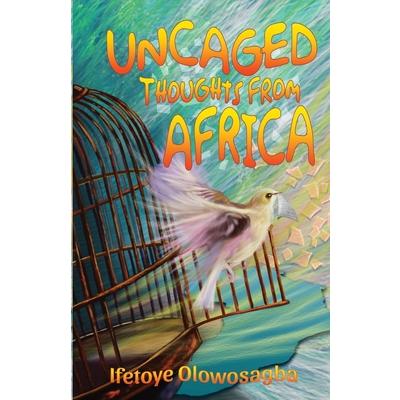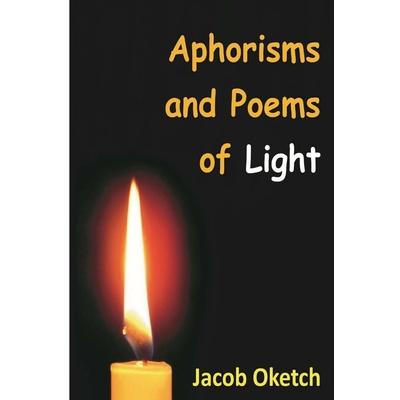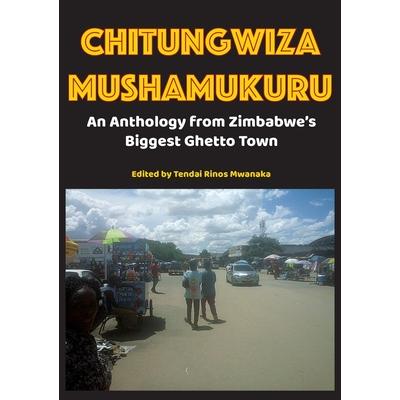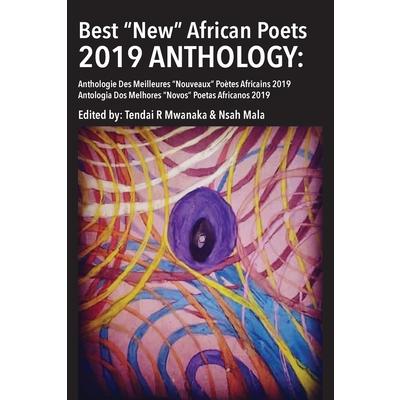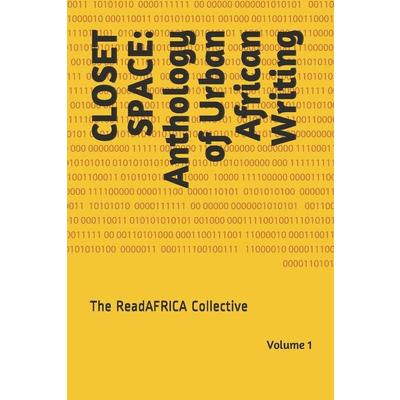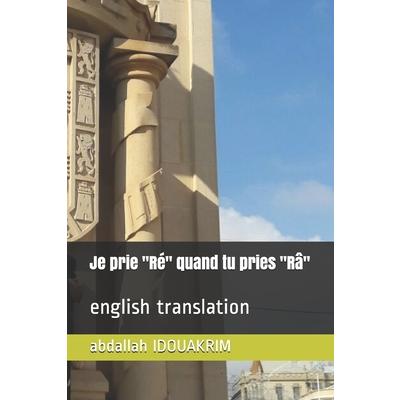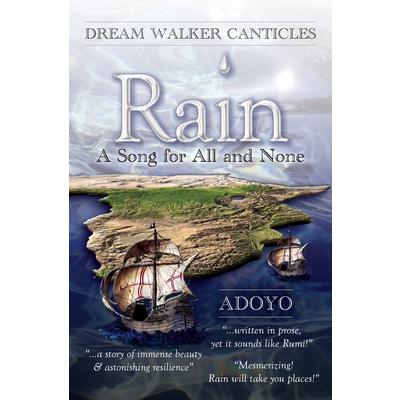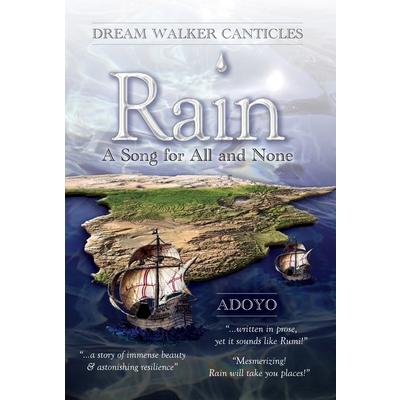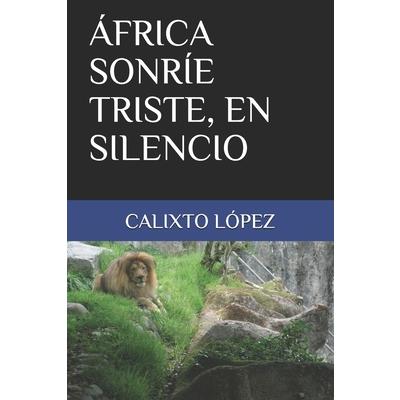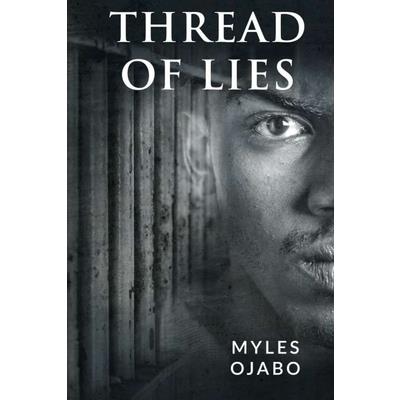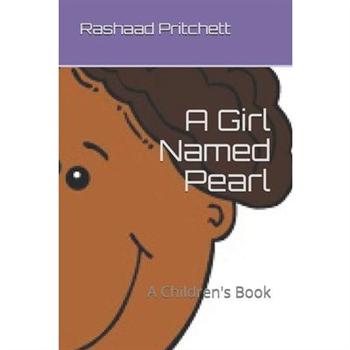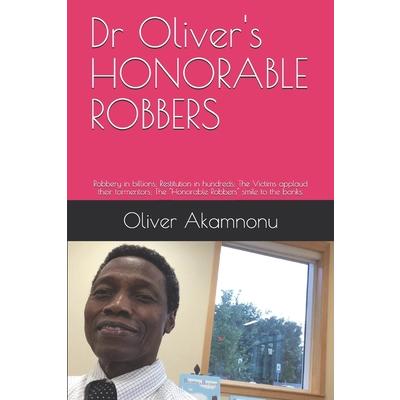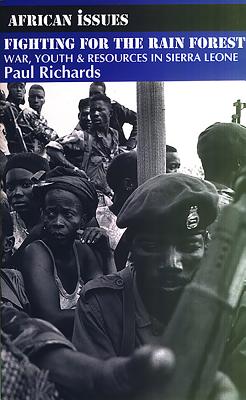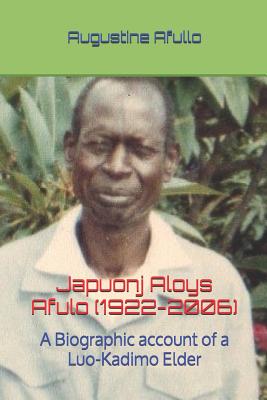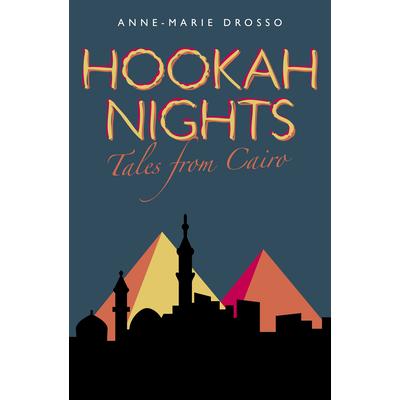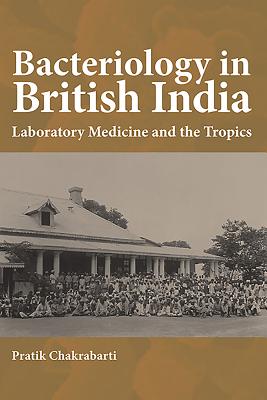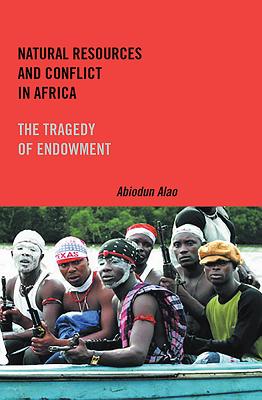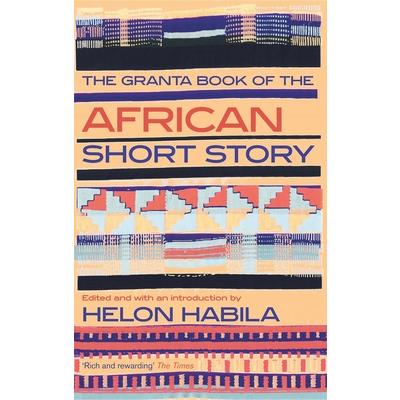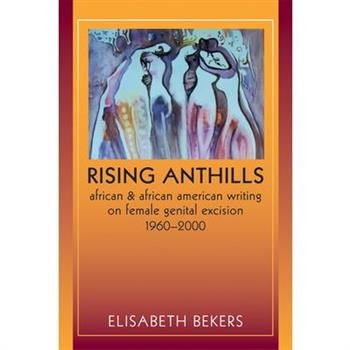Good Pedigree
"Every child that comes from a proper home gets morning blessings from their parents. This is a tradition. It ensures you do well in life. A wise child should cherish a parent's prayer." Iye has everything a good village girl should want - a respectable family, a boyfriend who wants to marry her. But why isn't she happy? Why does she want more? When her traditional father catches her in public with her boyfriend, she realizes what she truly wants. And it is not the village life. Independence, education, a career ... Her dreams. Iye is accepted to university, in Lagos - a world away from everything she knows. She quickly learns how exhilarating, but also frightening, the city can be. Struggling to be herself, she has to choose who her friends are before it is too late. Family revelations and personal disaster threaten everything Iye has worked for. Will she succumb to the jealousy and materialism claiming so many around her? Or will she prove to herself that her dreams are worth fighting for?
The Seasons of Change
The Seasons of Change is a text which discusses four seasons in which people experience during the process of life. These changes can impact one's mood and perception pertaining to self and worldview. The four seasons include: The Season of Innocence, The Season of Corruption, The Season of Depression, and The Season of Redemption. Each of the four seasons focus on self perception, personal and professional conduct, power and greed, deceit, hopelessness and self-vindication.
Racconti di Habbaassi III
Un alunno della Scuola delle Conoscenze in HAB Y SSINIA (Etiopia), studente del terzo anno di corso, ha studiato come scrivere storie da raccontare alla comunit? dopo che diventer? Guida, cos穫 decide di raccogliere tra gli altri studenti, anche altre storie tra coloro che sono diventati Gran Maestri; uno di questi 癡 il seguente, scritto da un bambino di otto anni.Un bambino nel campo ascolt簷 la conversazione di due animali parlanti; la cosa insolita era che erano una capra e una chiocciola, e la prima diceva alla seconda:
Great Collection of Tetela Proverbs on the African Wisdom
Great Collection of Tetela Proverbs on the African WisdomBy: Ambaye Albertine Tshefu, Elisabeth Mukanga Ndjeka and Albert Tshefu Empenge, Great Collection of Tetela Proverbs on the African Wisdom is a rich and charming collection of wisdom. Proverbs are an important and creative tradition of the Tetela tribe of the Democratic Republic of Congo. This book includes nearly 300 proverbs written in Tetela, French, and English.While some proverbs are similar to English sayings - "It is the survivor who narrates the story," "Nothing is impossible until the death," - others are unique - "Do not take fog for rain," "The basket of the prickly ants is difficult to carry and to put down." With short explanations, each proverb's meaning is illuminated for reflection and application.Filled with wisdom for a proper moral life, family relationships, leadership, encouragement, and reminders, these proverbs are both representative of the Tetela culture and universal in their hope and encouragement. About the AuthorAmbaye Albertine Tshefu is the sixth child in her family. She has always had a passion for writing. Tshefu received a bachelor's degree from Metropolitan States University in St. Paul, Minnesota. She has worked as an ultrasound technologist, but currently works as a substitute teacher. She has three daughters and two grandchildren.Elisabeth Mukanga Ndjeka is the widow of Albert Tshefu Empenge, magistrate. She is the mother of ten, including twins. She has grandchildren, great-grandchildren, nephews, grandnephews, and great-grandnephews living on Africa, Europe, and the Americas. She recorded these proverbs to share her tribe's culture and wisdom with her family.
Unity in Flight
This volume was our first anthology of fiction (2001)and included work by writers who had been published in the Botsotso literary journal. The themes reflect the turmoil of the 1980's and the new issues raised in the 90's. Maropodi Mapalakanye's stories focus on the political-military struggle against apartheid with an emphasis on the deadly 'twists of fate' that insurrection spawns with regard to the need to resist and its collateral damage to oppressed people. Peter Rule deals with more personal issues such as the anguish of rape and homophobic violence, the devastation of AIDS and the trauma of surviving police interrogation. Zachariah Rapola brings a surreal and tragic touch to stories about lonely misfits in Alexandria, Joburg's oldest African township. Michael Vines, on the other hand, writes about arty white suburban youth whose alienation is just as acute despite their wealthier environment. Phaswane Mpe's stories all foreshadow his novel Welcome to our Hillbrow which also deals with student life in Johannesburg and the ramifications of the Aids epidemic. Lastly, Kolski Horwitz touches on both the general political landscape of decolonization and internal corruption within the liberation movements as well as the shifting tides of sexual behaviour.
We Jive Like This
The Botsotso Jesters poetry performance group was founded in 1994. After a few member changes, it solidified in 1996 with the line up that published this first Botsotso book. The collectively written poems that provided such powerful performance material are followed by individual collections of each of the five. Anna Varney's graphics set the tone for many future books in which the combination of written and visual images becomes a striking factor.
No Time to Mourn
No Time to Mourn is a collection of short stories, poems, artwork and photography penned, produced and presented by South Sudanese women. It reflects the lives of the women writers and artists, and at the same time gives voice to the very real lived experiences and lives of every woman of South Sudanese heritage. The ideas and experiences in this book span decades they straddle borders, they cross continents and describe events that are hard to imagine, even with some knowledge of South Sudan's history. It is hard not to be moved as you read what many of these authors have lived through as they strive to achieve those basic of human rights: life, liberty and security. Through this book, we learn more about the cost of war and the value of peace, and how they affect women's abilities to found a home, bear and raise children, stay healthy and safe, secure education for themselves and their children, seek professional fulfilment and even fall in love, all while navigating society's often narrowly defined gender roles.
The Coming of Otungwi
This is a story is about a nation called Otungwi located deep in the heart of Africa. It follows its journey through the struggle of peace and prosperity. This is seen through the eyes of dynasties that have ruled over this country since its beginning. The story captures the different dynasties' perspectives and visions for their homeland and the lengths to which they are willing to go in order to attain their goals at the end of the day. It entails the challenges the rulers of this nation face and how they overcome diversity.
thorns in her flesh
THORNS IN HER FLESH is an illustrated collection of poems by a black woman on love that is often like a rose flower; magnificent in its beauty but burdened with pricking thorns. It is also about the realities of family relationships and the socio-cultural, spiritual, economic, and political complexities of life in the African context. In this collection of poetry, Eshe has thrown together poems of different themes; something akin to mixing lemon slices and balls of sugar in water. She hopes you, her dear reader, would be kind enough to stir and enjoy a tall glass of lemonade! The book is split into four chapters: Pricking Companions, Hyena Dance, Tangled Knots, and Liquid Fire
A Victim of Injustice
It is very important that one looks before one leaps, for every decision or action produces a consequence. But it is absolutely unjustifiable for an innocent person to go through hell as a result of someone else's actions. Sadly, that was the exact terrible ordeal an only girl-child suffered.Serwaa-Akoto was unluckily rendered a victim of injustice. And despite her incomparable beauty and immense personal charm, her burning desire to get married and have children remained elusive.The story portrays some of the traditional beliefs and practices of the African society. In the course of development, however, most of them, especially those that either raised ethical issues or violated human rights, have been modified to fall into line with modernity. It thus provides valuable insight into our unique culture and civilisation. It is simply a must-read novel for the African diaspora especially. But readers must be 18 or above since the story contains scenes of romance, violence and crime.
Sur Des Sentiers Solitaires de Poussi癡re et Autres histoires
Je venais de dire ? mon mari qu'il ne m'avait jamais amen矇 ? ce stade, que je me branlais pour apaiser l`envie de lui qui 矇tait encore insatisfaite, que j`aurais fr矇mit ? ses coups mous et ? ses pouss矇es lentes, pour me faire crier son nom d`extase. Il quitta ? la h璽te mes cuisses 矇cart矇es et m'accusa d'infid矇lit矇.- Qui est donc l'homme avec lequel tu as couch矇 ? Il m'aboya dessus, et il me tra簾na par les cheveux hors du lit jusqu'? la salle ? manger. Il exigea que je jure sur la Sainte Bible sur la table centrale qu'aucun homme ne m'avait besogn矇e en dehors de lui.-------Sur Des Sentiers Solitaires de Poussi癡re et autres histoires est un recueil de quinze nouvelles impr矇gn矇es de frictions intrigantes de la soci矇t矇 moderne. Ces histoires centr矇es sur les personnages et l'intrigue dressent le portrait intransigeant d'矇l矇ments qui agitent la soci矇t矇 et les individualit矇s humaines. C'est une tumultueuse s矇quence de th癡mes universels suivant les luttes humaines, l'acceptation des valeurs et le renouvellement des normes. Les th癡mes transpirent l'amour, la col癡re, la frustration, la culture, l'audace, le crime, le d矇nigrement humain, la discrimination de genre, l'espoir, la survie, la d矇couverte de soi et la crise d'identit矇, l'矇mancipation politique et plus. L'humour est pourtant pr矇sent dans ce recueil de reflexion ininterrompue, parsemant le texte comme un brumisateur humoristique.
Africa
In Africa: Through a Mirror, Saikou Camara acknowledges that the African has been brutalized, dehumanized and depersonalized by legalized colonial supremacy for over 300 years. In spite of all the injustice, as a born proud African, he makes a call to all Africans and people of African descent to come together and build our continent. He walks his readers around the African continent outlining preventable self-inflicting wounds that can be avoided. He shares the history of inaugural African leaders such as Kwame Nkrumah, Julius Nyerere, and other prominent African leaders, who worked with other Pan-African leaders such as Marcus Garvey. He also goes further to offer applicable solutions to some of the issues affecting the African continent for a way forward.
FireCRACKER
From discussing the flames of hell to the fiery nature of racism, Tyler Lazarus scorches the earth with his most devastating, blunt blow of social observation leaving black people and white people behind in shocked silence. The bridge to both won't be a bridge to nowhere like other critics have tried to connect to in the past but undeniable truths that link both sides of the race coin that will leave each group feeling slightly uncomfortable. Of wounds, time and cultural healing, in a flourish of heated words, Tyler does his most expert dance through a minefield of issues and historical tension; displaying a range of sheer versatility and finally establishing his voice as a credible and important contender in the literary world, once and for all, taking on topics others simply lack the range, skill and life experience to cover. Of black and white thinking + to black and white people - and finally, to all people. From oddity to duality ☯️ what do aliens, alienation, slave reparations and Breonna Taylor and Abraham Lincoln all have in common? Find out in this fourth and final novel of 2020
The Trumpet and Other Poems from East Africa
"The Trumpet and Other Poems from East Africa" is a series of poems from Ugandan author Mugumya Amooti, R. who currently resides in Rwanda. The poems focus on six issues: (1) Politics and Governance in Africa, (2) Faith and Religion, (3) Materialism and Morality, (4) Love, (5) Nature and Society, and (6) Death and Metaphysics.
The Stories and Studies of African Values
Most African and other nations often build and develop their economic, social, political and other structures at the expense of their Value Systems which are often constructed by the prevailing norms, cultures, law and order in the societies.The Value System in each country is always the live wire that powers other vital structures, including security machinery. Thus it is possible to have security challenges in a country with good political structure and healthy economy. In order to reinforce their Value Systems, some countries embed what the nations stand for and against in their National Anthems and The Pledge to the nations.The neglect or shutting down of National Value Systems in most African nations give rooms for vices and crimes to be on the increase.This book is designed to be studied by parents, teachers and students in primary or junior and high schools in Africa with the objectives of imbibing African traditional and moral values into them. With particular focus on children and youths, through the use of stories; poems; proverbs; quotes and class activities, the author attempts to give vivid pictures of African Values as opposed to westernization which is clearly wiping out what the founding fathers of the nations on the continent stand for.
Writing Robotics
Writing Robotics, Africa Vs Asia Vol 2 follows Writing Language, Culture and Development, Africa vs Asia, Vol 1. Writing Robotics features 18 writers and poets from the two regions, Asia and Africa collaborating around the issue of Robots, in whatever form. From the traditional African robotics science, to the latest robots and the imagined robots of tomorrow, how the two regions Africa and Asia are coming to terms with the oncoming Robotics revolution, the so-called 4th industrial revolution. The book serves to encourage rather than to scare the inhabitants of these regions to embrace the revolution, and to show them robots are already a part of us as we are a part of them.
Escape From Freedom
Gukurahundi" is a word that generally evokes strong emotions in Zimbabwe, for it describes a dark period in the country's relatively young history. This novel tries to understand that part of Zimbabwe's unsavoury past through the eyes of a young man, Sipho Dube, who, at sixteen, leaves his home in Matabeleland South partly to seek his fortune in South Africa, but mainly to escape the ravages of Gukurahundi, which appeared to target young men.Separated from his travelling companions - all of them older than him - due to a flash flood as they try to cross the Limpopo River, Sipho finds himself alone, in a foreign land, with nothing. This starts him on a journey of self-discovery which culminates with him meeting and falling in love with Rumbidzai, an ethnic Shona, whose people are largely held responsible for the misery inflicted on Sipho's people by Gukurahundi.After ten years of living and working illegally in South Africa, Sipho travels back to his native land to find a completely different country where the people he meets have lost all hope; the promise and excitement of independence all but a distant memory. In conversations with the people back home, and later with other Zimbabweans in South Africa, Sipho begins to understand some of the history of the people of Southern Africa and how similar their cultures and Languages are. Colonisation, which was designed to serve the purposes of the colonisers, has changed Southern Africa's narrative to this day. He begins to understand that Gukurahundi, election violence in Zimbabwe, (and many other African countries), xenophobia in South Africa and elsewhere, can all be seen as the continuation of a narrative that started with a conference in Berlin, where all of the developed countries in Europe with an interest in Africa, met to carve up the continent without any input from the indigenous people of the said continent. The borders they created keep Africa divided and in competition with itself to this day, keeping the people of Africa poor, while they compete to give away their wealth of natural resources in exchange for the 'hard' currencies of their former colonisers and their allies.Throughout the book, the romance between Sipho and Rumbidzai is the constant thread that knits the story together, demonstrating the conflicts and contradictions that are necessarily present in Zimbabwe's ethnicity debate and the oft forgotten truth that all of humanity is the same.
Songs of African Fathers
The late African Presidents such as Julius Kambarage Nyerere, Nelson Mandela, Kwame Nkrumah and others declared the devastating war against poverty, ignorance, and other miseries. Their wise words, visions, and actions paved a way for a new Africa.These poems portray their paramount wisdom and knowledge that enrich nowadays generations. They fought enemies of African development and prosperity; they believed Africa can shine more than the stars. The following is an extract of the poem, 'Africa and Ignorance.' Perhaps, Africa and ignorance, Are enemies and best friends at once, Many times, Africa acts in ignorance, Its citizens get hurt in tolerance, Maybe, Africa has a lifelong love affair with ignorance, Because I don't see a serious severance, Since then, my Africa fell asleep, A sleepyhead land, who will wake it up? Some Africans are far to the limit of ignorance, Should they say no or be submissive to ignorance? I hope you have enjoyed this description. Grab your copy and have fun. ABOUT THE AUTHOR.Mniko Chacha is the Self-Published Author of five books namely: An Enemy of the Villagers (A book of stories), Kiraka Cha Ukombozi (This is a Novel in Kiswahili Language, ) Weka Pesa Pata Pesa (a book of poems in Swahili), Songs of African Fathers (This is a book of poems, ) and Storms and Pleasures (a book of Motivational Poems.) All these titles are available on Amazon websites.His various works have been published on various magazines such as: Ponder Sarvant, Rock City Eye Magazine, and the 13 Alphabet Magazine. He works on a new novel in Swahili, which he intends to release on 2022. Follow him through Facebook Mniko Chacha, Twitter @mnikochacha3, Linkedn Mniko Chacha, and Instagram mniko50.
Lusophone African Short Stories and Poetry After Independence
In 1975, after much resistance, Portugal became the last colonial power to relinquish their colonies on the African continent. The tardiness of Portuguese decolonization in Africa (Cabo Verde, Angola, Mozambique, Guinea Bissau, S瓊o Tom矇 and Pr穩ncipe) raises critical questions for the emergence of national literary and cultural production in the wake of national independence. Bringing together the works of poets, short story writers, and journalists, this book charts the emergence and evolution of the national literatures of Portugal's former African colonies, from 1975 to the present. The aim of this book is to examine the ways in which writers contended with the process of decolonization, forging national, transnational, and diasporic identities through literature while grappling with the legacies and continuities of racial power structures, colonial systems of representation, and the struggles for political sovereignty and social justice. This book will be the first of its kind in English to include canonical, emerging, and previously untranslated authors of poetry and short-form fiction to a new public. Lusophone African Short Stories will bring to light and to broader audiences the important artistic engagement of writers from five African nations that are largely neglected outside the field of Lusophone Studies - Angola, Cabo Verde, Guinea-Bissau, Mozambique, and S瓊o Tom矇 e Pr穩ncipe. The literary production emanating from these locales offers perspectives and novel forms of engagement against the forces and legacies of Empire in the nearly five decades of postcolonial independence. The collection will make available to new readerships, scholars, and students, canonical and emerging literary thought and works that are borne out of the persistent struggle against imperialism and its racial, gender, sexual, and socioeconomic tenets. In this regard, the collection will feature an array of literary voices, genres, and aesthetics including novels, poetry, science fiction, Afro-Futurism, and postcolonial feminism. These recent artistic trends, we argue, are integral tools for individual and collective grappling with the political, societal, micro- and macro-economic, and cultural challenges of the postcolonial present. They have become modes of imagining communal subjectivity in new ways from the periphery of global capitalism and against forces of neocolonialism.
windows
'windows', the debut collection from Jesutomisin Ipinmoye, serves a chance to peer into the collective experiences that make us human, from our pain and loss to our hope and drive, all while underlining the human capacity for tremendous good and evil. the collection vibrates between different slices of life across Nigeria, all while telling the stories from the point of view of otherworldy observers, fascinated by what they see while unable to interfere. from exploring the complex relationships with an abusive father and his family to the tale of a man who in a drunken haze recounts to the police the story of how he was found in a park, with the dead body of the man who slept with his wife. so follow along and peer into the windows!
The Maganda Dimo Genealogy
Upto which of your ancestor do you know? Maganda is a sub-clan of the Kadimo residing in Yimbo, Siaya County. They are mainly found in Ndiwo (remember the famous Ndiwo Kipenji?) near Abora / Nyamboyo swamp on the shores of Lake Victoria. A small section is found around Usoga, just at the foots of Got Usenge (Usenge hills) where it is believed Dimo built a hut for his first wife, 'Nyangidia' who was later to die and turn into a respected spiritual Snake, Nyang'idia of Kadimo akin to the Omieri of Nyakach. To date, Nyang'idia pays rare visits to the Maganda lineage of Dimo....for it is believed that Mzee usually leaves some of his spirituality and deep secrets in his home...which is usually to be owned...or inhabited by his youngest son. It is due to this that Maganda remains a major pillar of the Kadimo. Historically, Maganda has had major heroes. It is believed than Nengo, later renamed Nengo Jamwa, from his brief sojourn in Uganda, brought in a special powerful spirit to the Land of Dimo which led to the Alego people who occupied parts of the current Kadimo, folding their belongings and relocating to Alego...without being told...and without a fight-battle or war...for they are Dimo brothers. So Maganda remains a major pillar of the great Kadimo, . Ths is a book worth your reading to know more about the Luo hidden power and other secrets, but most importantly, know how the walking beings are related to the historic Dimo, through the genealogy well articulated here.
No One Stands Accused
In the face of sustained cosmic upheavals there is not one who can be sure this world will live to turn another century. Bludgeoned by the only news of a new bombing, a new melting of the glaciers, a new epidemic; a new political, economical, and social meltdown: not one who lives with the hope of a better tomorrow. Humans have survived a great many days of abiding uncertainty, battered by forces recognizable and obscure, but never has the reality of inevitable doom been more evident. Not in memorable history been the times more unprecedented. We have attempted in our every capacity to remedy the deteriorating possibility of a life of perpetual harmony, each rebuttal with a tendency at affirming the inconvenient reality. But examining our grim condition, thoughtfully, Moses Guvheya finds it not unredeemable. Many have written highlighting man's contribution to the fall both of his destiny and his habitat, but to never so nearer an end, Guvheya accentuates, it can only be man's conscious efforts, the antidote. At the heart of this short treatise, if there must be hope to nature quick and dead, one finds a persistent appeal for man to turn to his first Creed.
Billowing Hearts
When Urenna Dinobi learns she can finally begin the process of adopting the little girl who stole her heart at an orphanage a few years ago, she is thrilled. Since she has been hurt in the past, her plan is to raise the girl and any other child she adopts in the future, alone. But when she meets Wole Billow, a kind and handsome entrepreneur, it takes everything in her to stick to her plan.Wole is smitten when he runs into Urenna -the fragile beauty who stole his heart ten years ago. Used to getting his own way, he puts together a plan to win her over. But with only a month to do so, and the annoying fact that Urenna seems totally uninterested in him, his success seems unlikely.
Uncaged Thoughts from Africa
Uncaged Thoughts from Africa is a poetry collection that encompasses vibrant and instinctive reflections into issues of life. It provokes deep thoughts about God, ancestry, and native identity, including politics, human activities, hope, faith, love, relationship, philanthropy, peaceful co-existence and survival. For those on a journey to attaining self-actualization and discovery, the moving words that Ifetoye shared through poetry on the pages of this book will help them find strength to sail across.
Aphorisms & Poemsof LIGHT
Jacob-the last born in his family- lost his mother when he was just 11 years old. His father died six years later. Left with no place to call home, 'Jack', as everyone calls him in the family, grew up in an uncertain environment living with one after another of his nine siblings for several years. A decade later, Jacob lost Patrick-another of his brothers with whom he had been living at the time-under mysterious circumstances involving police brutality. Destitute once again, Jack went to live with another brother. Four years later, and another blow: the untimely loss of his soft-spoken sister and counselor- Grace followed. His eldest sister Hellen had left the country to join her husband abroad and Grace was the remaining glue that held the family together. Devastated by these losses, Jacob would struggle for years to complete his undergraduate education at the University of Nairobi where he was pursuing a Bachelor of Arts degree in Literature and Linguistics (English). He finally crossed that off his to do list in 2001. Thereafter he found a simple dwelling at the outskirts of Nairobi city where he lived in a room in the compound of a family who accepted him as he was. Even with these devastating experiences, Jacob managed to cross-off another to do-a master's degree in communication studies at the University of Nairobi in 2018- following another several years of struggle. In 2019, Jack experienced further devastation when he lost another brother Erick, who fell sick and within only 8 days, was gone. Jacob realized the time had come for him to choose to either live or die after more than a decade of maladaptive coping lifestyle.On the brink of desperation, Jacob set out on a journey of self-discovery. In his quest to understand the way the universe works, an overpowering feeling spawned nuggets of wisdom that he records in this collection of poetry. He set out to discover what brings hope and expectation of a better life for an ordinary person like him. Realizing that he had been groping in darkness, he comes to a point of illumination only after a long reflection of what it really means to live a meaningful and satisfying life. This work is a journey of discovering the essence of a fulfilling life. Away from his personal challenges, Jacob embarked on a spiritual literary journey, finding refuge in spiritual literature. It is out of this immersion that the muse to write a spiritually inclined book was seeded. The power of the written word transformed his perception of what the universe actually entails, unraveling for him the realization that life is basically a form of energy that is cultivated by vibration.This book is a journey of faith in the power of the source energy and should be read with a flexible disposition. It delves into the realm of the metaphysical. In this collection of poetry, Jacob conveys meaning by employing symbols and images, for the reader to decipher the meaning of the written word. The interpretation of this work offers divine inspiration with the sixth sense.Aphorisms and Poems of Light subscribes to the idea that as human beings we are more than just physical beings, endowed with meanings much deeper than the mundane that many have mistakenly viewed as the totality of the human experience. It is our hope that Jacob's journey to spiritual freedom will illuminate a path for you as much as it has done for him.
Chitungwiza Mushamukuru
Sprawling to the south east of the revered Harare...there is a place millions call home, Chitungwiza as in that olden track, "mushamukuru, wakaenda kupiko, Chitungwiza." It is Zimbabwe's biggest village, that became a town, that became a city, that became our own Soweto... Zimbabwe's biggest suburb yet also Zimbabwe's Hollywood. It has produced or groomed Zimbabwe's creatives and creative industry from film, by the book, poets, musicians, entertainers, academia, media practitioners, sculptors and those involved in other visual arts. In this anthology, Chitungwiza Mushamukuru: An Anthology from Zimbabwe's Biggest Ghetto Town, we have work from 1 artist and 11 writers who have called this Chitungwiza, Zimbabwe home, or have wrote home about this place, or have created artworks which highlight the culture, identity, lives, and position Chitungwiza in these matrixes or beyond those highlighted above.
Best New African Poets 2019 Anthology
Over 600 poets have been given voice in this series which was started five years ago, making it an important archive of new African poetry. Every year space is given to as many poets as can be accommodated; it takes at least 10 years to make a poet! The greatest positive aspect of this series is the poems received from writers who contribute each year: Archie Swanson, Chaun Ballard, Chengetai Mhondera, Troydon Wainwright, Tendai Rinos Mwanaka and Soberano Canhanga, and several who have poems in the 2016, 2017, and 2018 anthologies, and so many new ones. Many poets have gone on to publish their first collection and more, several have won prizes all over the world, some have become academics, some influential performers of their work and some have travelled all over the world presenting their work.This year's Best "New" African Poets 2019 Anthology there is 197 poems from a more than one hundred poets (including collaborations) writing in English, Portuguese, French, and a whole host of African indigenous languages. Featured are poems which deal with love, relationships, politics, governance, spirituality, existence, identity and place. We invite you to this year's anthology to engage with the most important new African poets writing from the continent and the diasporas and enjoy this African pot-pouri of art and life.
Leaves From Love’s GardenAnd Random Rhymes
A Collection of poems on love and relationship. This book was rumored to have existed for many years. Indeed, that can be put to rest. Barclay struggled with love. He lived without the love of his life, a woman, whose identity he took to his grave, but whose beauty, tenderness and intellect, he is noted to have sung every chance he had. By dedicating the book to her, he made sure to keep the mystery alive.
Closet Space
Written by 20 closet poets and new storytellers, this anthology of urban African literature is a reflection of the continent's amazing diversity.
RainA Song for All and None
Rain tells the story of the Dream Walker Maya, an empathic clairvoyant who experiences history through the eyes of other Dream Walkers across time.Under the guidance of ancestral Spirits, Maya strives to find her bearings as she is swept up in the thousand-year saga of the devastatingly insidious legacies of colonizing empires that continue to ravage her home. Braving uncharted waters, Maya discovers illuminating truths concealed behind the veil of History's public myths.Her quest unites her across the centuries with ancestral Dream Walkers who will teach her to understand the power of her gifts, and Maya learns to fulfill her destiny as a visionary steward of both the Past and the Future in an ever-changing world.A poetic meditation on History through the echoes of Oral Tradition, Rain recalls the song of storytellers born on the shores of the Great Lake Nam Lolwe at the eye of the Nile in the heart of East Africa.
Yours TrulyAn Atoned Sinner
Yours Truly is a book length poem; a poetic novella, that talks about the challenges of a country, the pain that people undergo to satisfy others and how they live in a rotten society, This book touches on key issues that the society faces in its day to day lives including corruption, injustice, murder, hypocrisy, adultery, misuse of power, religion misconduct among others The author takes us through several events through letters he drafted during his stay in prison, atoning for his sins and seeking for forgiveness from the society, His letters are addressed to those who underwent pain during his reign as a government worker. Also he writes to those who used and dumped him, urging them to change and return to the good ways.Lewis Wamwanda's Yours Truly is a must read for those seeking to understand the sacrifices people go through to please those above them
RainA Song for All and None
A poetic meditation on History through the echoes of Oral Tradition, Rain recalls the song of storytellers born on the shores of the Great Lake Nam Lolwe at the eye of the Nile in the heart of East Africa. The first volume in the Dream Walker Canticle series, Rain tells the story of the Dream Walker Maya, one of history's empathic clairvoyants who experiences the story of humanity through the eyes of other Dreamers, unlimited by time or distance.Under the guidance of ancestral Spirits, Maya strives to find her bearings as she is swept up in the thousand-year saga of the devastatingly insidious legacies of colonizing empires that continue to ravage her home. Braving uncharted waters, Maya discovers illuminating truths concealed behind the veil of History's public myths.Her quest unites her across the centuries with ancestral Dream Walkers who will teach her to understand the power of her gifts, and Maya learns to fulfill her destiny as a visionary steward of both the Past and the Future in an ever-changing world.
?frica Sonr穩e Triste, En Silencio
?FRICA SONR?E TRISTE, EN SILENCIO?frica m獺s que un continente es una madre, la de toda la humanidad, desde donde sus hijos se fueron desprendiendo de su pecho en los propios albores de la evoluci籀n del hombre como especie.Como madre, desde sus tiernos brazos morenos no han dejado de desgajarse sus hijos d穩a tras d穩a, noche tras noche, cruzando los estrechos, los mares y el oc矇ano, unas veces por voluntad propia, otras por necesidad y en ocasiones, de manera a繳n m獺s dram獺tica, obligados por la crueldad de otros hombres, como ocurri籀 en la 矇poca de la esclavitud tras los grandes descubrimientos, cuando cruzaron el Atl獺ntico hacinados en barcos y galeras de esclavos, en lo que constituye uno de los episodios m獺s tristes, vergonzosos y repudiados de la historia humana.Hoy en d穩a aun sus hijos siguen abandonado los tiernos brazos maternos, expuestos a mil peligros y a las adversidades de un destino incierto, y lo hacen sonrientes, tristes, callados o melanc籀licos, como si cada uno de ellos llevara en su coraz籀n la enigm獺tica, pero franca sonrisa de su madre morena.Los que han tenido la suerte de convivir un tiempo en la sagrada tierra madre de la humanidad, sentir su calor, su aliento, su sonrisa triste, aunque parezca alegre, no pueden por menos que recordarla con cari簽o, con ternura; y si es posible hacer algo por ella, por aliviar su pena y su dolor, y tal vez en mi caso escribir estos humildes relatos inmersos en un mundo de realidad y ficci籀n, como siempre lo hago, entremezclando ambas cosas, aunque diste con ello de alcanzar a brindarle todo el homenaje que quisiera tributarle, porque merece mucho m獺s que esto la verdadera cuna de la humanidad.El contenido de esta selecci籀n consta de nueve relatos, la mayor parte vinculados a la segunda parte del siglo XX, m獺s cercano a la d矇cada de los 80, cuando los pa穩ses colonialistas se vieron obligados por diferentes circunstancias a abandonar el continente, dejando a sus hijos hu矇rfanos pol穩ticamente a que enfrentaran sus designios, muchas veces bajo el hostigamiento econ籀mico, pol穩tico y militar de potencias extranjeras no contentas con que estos pa穩ses pudiesen alcanzar su verdadera independencia y comenzar a transitar por la dif穩cil senda del desarrollo, tras asumir el dif穩cil reto de superar cientos de a簽os de atraso cultural que los separan de la civilizaci籀n occidental tomando esta, si se quiere, como faro del progreso.Bajo estas circunstancias se bosquejaron estos relatos, aunque uno en particular se traslad籀 en un sentido m獺s alejado de la historia, hasta la 矇poca de la esclavitud y la trata y tr獺fico negrero desde la ruta de la costa atl獺ntica de ?frica: Angola, Guinea y Senegal, hasta las Am矇ricas.En la esencia de los relatos se manifiestan los m獺s genuinos valores del ser humano, alejados en lo posible, de la crueldad, la venganza, la violencia o cualquier otro sentimiento nocivo, por lo que prevalece la ternura, la amistad, el agradecimiento y la convivencia 矇tnica multicultural y hasta con los animales.Son diez relatos: Un ni簽o ovimbundo, Kuingo, Liona, Palanca preta gigante, O Tristeza, Mellizos, Falsa acusaci籀n, Los favores del Soba, Eu tenho um problema y La odisea de un pr穩ncipe africano, los cuales dejamos bajo el lente cr穩tico e infalible de los lectores, pero sobre todo como un homenaje sencillo, pero sincero al continente africano en su totalidad, sin distinci籀n de idioma, lengua, religi籀n cultura o naci籀n y tambi矇n a las personas de otras regiones que han colaborado con su desarrollo y m獺s a繳n a las que ofrendaron sus vidas en ese intento.
Thread of Lies
Thread of Lies, a harrowing and powerful composition of interrelated stories is built around the homophobic murder of a lesbian couple. Their deaths serve as the background and the catalyst for the narrative, written with a grim ferocity in a minimalistic yet graphic style. The unremitting depiction of violence, its violent consequences, and rampant homophobia are brought into sharp relief through the frightening presence of the character, Tito Ogheneovo. His madness fuelled by unswerving, brim-full fury, intertwine lives in Nigeria and New Zealand. He becomes the centre of attention in the subsequent search for the truth behind the murder. Thread of Lies, a significant part of the writer's 2013 Master's thesis, has been praised by lecturers at the Auckland University of Technology for having both the features of a novel and a collection of discrete stories because of the centrality of the character Tito and his growing violence. The events in the collection, dealing with causes and consequences, are in hectic orbit around the central, centrifugal act of violence in a manner best achieved by the composite novel approach.
Dr Oliver’s HONORABLE ROBBERS
A highly pampered young medical undergraduate, whose father had invested so heavily in his education and who was the pride of his parents, derails from his course in the university and joins a secret cult.In the course of his initiation, he discovers to his chagrin that his highly revered father, who was one of the economic pillars of the society, was indeed one of the secret patrons of the murderous organization. He discovers further that his once adored father must have made his billions from the criminal activities of the organization.A later chance discovery by the distraught father that his treasured only son was a new entrant into the criminal gang sets off an instant deep-seated remorse from the father that was to lead him into violation of the sworn tenets of the organization. These tenets included an order "never to quit" at the level at which he was. The reprisals from the evil organization were instant.Other beneficiaries of the evil gang and prot矇g矇s of the absconded kingpin got into governance and were to pollute what was otherwise a highly revered legislative body.Greed and avarice were to lead to mutual mistrust and destruction.The emergence of a new generation of leaders out of the ashes of virtual Armageddon appeared to hold out some light at the end of the tunnel: A new generation, new hope, and a new breath of fresh air emerged for a people held down for too long by a cabal that had its fangs thrust deeply into the flesh of the society!
Fighting for the Rain Forest
Examines the war in Sierra Leone as a crisis of modernity. Do small wars in Africa manifest a 'new barbarism'? What appears as random, anarchic violence is no such thing. The terrifying military methods of of Sierra Leone's soldiers may not fir conventional western models of warfare, but they are rational and effective nonetheless. The war must be understood partly as a 'performance', in which techniques of terror compensate for lack of equipment. PAUL RICHARDS is Professor of Technology and Agrarian Development, Wageningen University Published in association with the International African Institute
Japuonj Aloys Afulo (1922-2006)- Part I
Japuonj Afulo, a Luo-Kadimo elder, was meant to be his father's herdsboy, but somehow manouvres his way to school, ending up as a headteacher in 1946. Starting off as an Anglican in Usenge sector school, Siaya County (Kenya), Japuonj proceeds to Yala intermediate and gets converted to Catholic. He walks many kilometres to Aluor, carrying only Kuon Anang'a as his meal for all the days, in order to undertake Catechism / Confirmation lessons. Aluor was a far location to which he must walk from his Kasau (Kadimo)/ Kadimu) home, spend at least a week, and walk back, relying on the same Kuon Anang'a (specially prepared & preserved sorghum thick porridge made from milk). Japuonj walks through a successful yet busy and challenging teaching career path. After 2-3 year experience, he established a new, and the first Catholic school, Nyamonye, in Kadimo (Kadimu) amongst his father's uncles, the Kowil. Here he successfully navigates through a very rough terrain for two decades, even losing his first Wife, Akoth Olali nyar Kobong'. He marries Margaret Nyar Kagwa, and works in Nyamonye for 2 decades before leaving for Barkanyango school following a Kisumu Gunshot mishap. Along the way, Japuonj successfully tries his luck in the then prestigious provincial administration as an assistant chief, (then called Mruka) but is persuaded by the then Father in Charge, Auderaa not to take up the position even though he won. This gives his number two, Zedekiah Opala (Nyakwar Jiii) a chance to become an assistant .chief. All along, Japuonj proves to be a point man for the catholic's Mill Hill mission in the entire Bondo and Rarieda sub-counties, and successfully walking the journey from Aluor, and seeing the establishment of Lwak, Nyangoma and Nyamonye missions. His initial efforts to bring the missionaries to establish the Nyamonye mission fails after the hosts to be refuse to offer land. This gives Nyangoma a chance, a mistake that Nyamonye faithfuls pay for heavily by walking to Nyang'oma for 20 years before finally having a parish established there by Fr Kraackman. Whike in Nyamonye, Japuonj starts off other catholic schools in Kadimo (Kadimu), but Ulungo and Lul fail to survive due to religious conflict with the dominant CMS, while Goye is submerged by the Independence floods of 1964. Othach Survives courtesy of shrewd community and parent mobilization by Afulo's in law, Mzee Okongo. Afulo proves to be an all round leader who is also elected by his dominant Kadimo kin as the founding chair of the of newly formed kanyathuon welfare association, Dala Branch. He successfully leads the association for 3 decades, registering key achievements of establishing 6 primary schools and at least a secondary school in the Kanyathuon sub-clans, before finally passing over the mantle to a youthful but promising Wison Odhiambo Oreme. He retires gracefully after 40 years of remarkable service, but continue to offer his services to the community as a mentor and advisor. He dies in 2006, leaving behind two widows, Margaret Akelo nya Kagwa, and Margaret Auma nyar Ugenya, alongside 16 highly successful professional adult children, and at least 40 grandchildren. The book discusses to depth the Kadimo genealogy, comprising Kanyathuon, Ajongo, Bith / Oyugi and Maganda. Besides, the book delves into the migration of the Japuonj's ancestor, Dimo, right from his brief sojourn in Soroti, Alego, and triumphant arrival and conquest of Yimbo @ Misori. The book further discusses the Dimo relationship with other clans he found settled in Yimbo, with a special relationship built with the Goma through a deliberate marriage . pact. This is a rich history of the Kadimu and Kenya, in various sectors, with a focus on religion and education. The cultural practices of the Luo, including Nago Lak (removal of 6 lower teeth), are discussed, as well as marriage, dowry, traditional foods of Yimbo, and a brief history of introduction of new religion to East Africa, Kenya and
Hookah Nights
Anne-Marie Drosso's collection of fourteen short stories guides us through the turbulence of Egyptian modern history - from Gamal Abdel Nasser's early days of glory, to Abdel Fatah el-Sisi's recent assumption of power. Each story weaves a tapestry of hope, crisis and despair, illustrated through an array of characters trying to make sense of their lives in the face of social change and political turmoil. Drosso fictionalises potent segments of time from the mid-20th century onwards, revisiting illuminative figures from and affiliated with the 'Cradle of Civilisation'. The collection kicks off with 'Good Man', a story based on the life and death of writer and diplomat Herbert Norman (1909-1957), who was the Canadian Ambassador to Egypt (1955-1957) during the Suez Crisis. 'Lee is Coming' is loosely based on Lee Miller (1907-1977), the model, muse and photographer, following her divorce from an Egyptian businessman. These personal, often touching tales provide a seamless narrative to the Egypt's tumultuous transitional phase.
Bacteriology in British India
The first book to provide a social and cultural history of bacteriology in colonial India, situating it at the confluence of colonial medical practices, institutionalization, and social movements. During the nineteenth century, European scientists and physicians considered the tropics the natural home of pathogens. Hot and miasmic, the tropical world was the locus of disease, for Euopeans the great enemy of civilization. Inthe late nineteenth century when bacteriological laboratories and institutions were introduced to British India, they were therefore as much an imperial mission to cleanse and civilize a tropical colony as a medical one to eradicate disease. Bacteriology offered a panacea in colonial India, a way by which the multifarious political, social, environmental, and medical problems and anxieties, intrinsically linked to its diseases, could have a single resolution. Bacteriology in British India is the first book to provide a social and cultural history of bacteriology in colonial India, situating it within the confluence of advances in germ theory, Pastuerian vaccines, colonial medicine, laboratory science, and British imperialism. It recounts the genesis of bacteriology and laboratory medicine in India through a complex history of conflict and alignment between Pasteurism and British imperial medicine. By investigating an array of laboratory notes, medical literature, and literary sources, the volume links colonial medical research with issues of poverty, race, nationalism, and imperial attitudes toward tropical climate andwildlife, contributing to a wide field of scholarship like the history of science and medicine, sociology of science, and cultural history. Pratik Chakrabarti is Chair in History of Science and Medicine, University of Manchester.
African Short Stories
Bequeathing an enduring tenet for the creative enterprise, African Short Stories vol 2 boldly seeks to upturn the status quo by the art of narration. Whether they are stories of the whistle blower estranged and yet sounding the warning for heaven and earth to hear, or a ragtag army fleeing in the wake of a monstrous reptilian onslaught upon her peace, there pervades a sense of ultimate victory in this collection. We can feel the gentle kick of a baby in the womb of a maiden in desperation, or we can muse at the two adolescent genii on the trail of their dreams from the sunset of mutual deceit into the daylight of true becoming. Victory is laid out in that awesome kindness of a total stranger which affirms the divinity latent in even our most harrowing existence. With thirty five stories in two parts these literary experiments compel attention to the courageous hearts and minds that brighten the African universe of narration. Their vibrant notes coming from all corners of north, west, east and south fill us with encouragement and optimism for the contemporary short fiction in Africa.
Natural Resources and Conflict in Africa
The first comprehensive account of the linkage between natural resources and political and social conflict in Africa. Conflict over natural resources has made Africa the focus of international attention, particularly during the last decade. From oil in Nigeria and diamonds in the Democratic Republic of Congo, to land in Zimbabwe and water in theHorn of Africa, the politics surrounding ownership, management, and control of natural resources has disrupted communities and increased external intervention in these countries. Such conflict has the potential to impact natural resource supply globally, with both local and wide-reaching consequences. The United States, for example, estimates that a quarter of its oil supply will come from Africa by 2015. Natural Resources and Conflict in Africa is the first book to offer a detailed look at conflict over various natural resources in several African countries. Abiodun Alao undertakes this broad survey by categorizing natural resources into four groups: land [including agricultural practices and animal stock], solid minerals, oil, and water. Themes linking these resources to governance and conflict are then identified and examined with numerous examples drawn from specific African countries. Alao's approach offers considered conclusions based on comparative discussions and analysis, thus providing the first comprehensive account of the linkage between natural resources and political and social conflict in Africa. Abiodun Alao is professor of African studies at King's College London.
The Fante and the Transatlantic Slave Trade
Examines the history of the Fante people of southern Ghana during the transatlantic slave trade, 1700 to 1807. The history of Ghana attracts popular interest out of proportion to its small size and marginal importance to the global economy. Ghana is the land of Kwame Nkrumah and the Pan-Africanist movement of the 1960s; it has been a temporary home to famous African Americans like W. E. B. DuBois and Maya Angelou; and its Asante Kingdom and signature kente cloth--global symbols of African culture and pride--are well known. Ghana also attracts a continuous flow of international tourists because of two historical sites that are among the most notorious monuments of the transatlantic slave trade: Cape Coast and Elmina Castles. These looming structures are a vivid reminder of the horrific trade that gave birth to the black population of the Americas. The Fante and the Transatlantic Slave Trade explores the fascinating history of the transatlantic slave trade on Ghana's coast between 1700 and 1807. Author Rebecca Shumway brings to life the survival experiences of southern Ghanaians as they became both victims of continuous violence and successful brokers of enslaved human beings. The era of the slave trade gave birth to a new culture in this part of West Africa, just as it was giving birth to new cultures across the Americas. The Fante and the Transatlantic Slave Trade pushes Asante scholarship to the forefront of African diaspora and Atlantic World studies by showing the integral role of Fante middlemen and transatlantic trade in the development of the Asante economy prior to 1807. Rebecca Shumway is assistant professor of history at the University of Pittsburgh.
The Granta Book of the African Short Story
Presenting a diverse and dazzling collection from all over the continent, from Morocco to Zimbabwe, Uganda to Kenya. Helon Habila focuses on younger, newer writers - contrasted with some of their older, more established peers - to give a fascinating picture of a new and more liberated Africa. These writers are characterized by their engagement with the wider world and the opportunities offered by the end of apartheid, the end of civil wars and dictatorships, and the possibilities of free movement. Their work is inspired by travel and exile. They are liberated, global and expansive. As Dambudzo Marechera wrote: 'If you're a writer for a specific nation or specific race, then f*** you." These are the stories of a new Africa, punchy, self-confident and defiant. Includes stories by: Fatou Diome; Aminatta Forna; Manuel Rui; Patrice Nganang; Leila Aboulela; Zo禱 Wicomb; Alaa Al Aswany; Doreen Baingana; E.C. Osondu.
The Front Line Runs Through Every Woman
Theorizes the experiences of women in wartime, and specifically of African women during Zimbabwe's anti-colonial struggle. A Zimbabwe-specific study, focusing on the lives of women in a small locale (Chiweshe) during the anti-colonial insurgency, this book is also a challenge to established and still current modes of thought and research orientationswhich over-simplify the complex realities women face in the full range of violent conflicts, both past and present. By contextualizing the voices of women of Chiweshe, not only is an important and under-developed aspect of Zimbabwean and African history revealed, but a new approach to comprehending the highly-tensioned lives of women in war is presented, which is characterized here as Gendered Localised Resistance. This is examined through the prism of life in the Protected Villages in Chiweshe experienced in everyday social relations, revolutionary roles, and food security. It traces how women forged strategies of survival and resistance in the middle of guerrilla warfare pitted between the forces of the state and the revolutionary resistance movements. The book can be read as a unique and richly detailed account of the lives of women during the Zimbabwe civil war and liberation struggle; as a wider argument about how researchers can approach and incorporate lived experience into accounts of larger dynamics (war/revolution); and as a substantial and important contribution to feminist historiography and writings on women and war. Eleanor O' Gorman is Senior Associate at the Gender Studies Centre and a Research Associate at the Department of Politics and International Studies at the University of Cambridge; an independent consultant who has advised the UN, the UK Government (DFID and FCO), the Irish Department of Foreign Affairs, the European Commission, and the Organisation for Economic Cooperation and Development (OECD) Zimbabwe: Weaver Press
Rising Anthills
Female genital excision, or the ritual of cutting the external genitals of girls and women, is undoubtedly one of the most heavily and widely debated cultural traditions of our time. By looking at how writers of African descent have presented the practice in their literary work, Elisabeth Bekers shows how the debate on female genital excision evolved over the last four decades of the twentieth century, in response to changing attitudes about ethnicity, nationalism, colonialism, feminism, and human rights. Rising Anthills (the title refers to a Dogon myth) analyzes works in English, French, and Arabic by African and African American writers, both women and men, from different parts of the African continent and the diaspora. Attending closely to the nuances of language and the complexities of the issue, Bekers explores lesser-known writers side by side with such recognizable names as Ngugi wa Thiong'o, Flora Nwapa, Nawal El Saadawi, Ahmadou Kourouma, Calixthe Beyala, Alice Walker, and Gloria Naylor. Following their literary discussions of female genital excision, she discerns a gradual evolution--from the 1960s, when writers mindful of its communal significance carefully "wrote around" the physical operation, through the 1970s and 1980s, when they began to speak out against the practice and their societies' gender politics, to the late 1990s, when they situated their denunciations of female genital excision in a much broader, international context of women's oppression and the struggle for women's rights.





